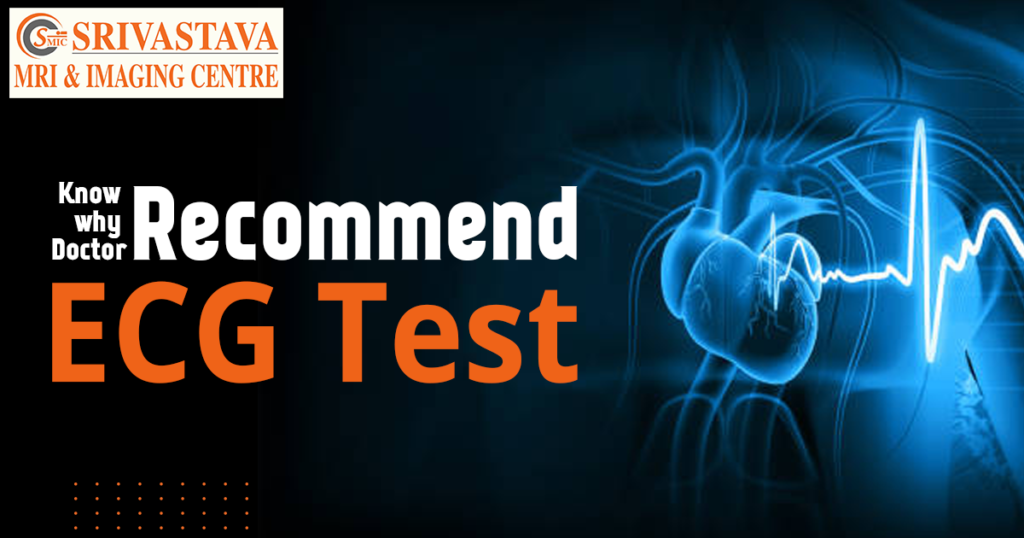ECG test
It is a test that records the electrical activity of your ticker through small electrode patches that a technician attaches to the skin of your chest, arms and legs. Your doctor may suggest you get an electrocardiogram also called EKG or ECG to check for signs of heart disease in Diagnose centre near Apollo hospital jasola
It is an electrogram of the heart which is a graph of voltage versus time of the electrical activity of the heart in an ECG test centre in Delhi. Using electrodes detect the small electrical changes that are a consequence of cardiac muscle depolarization followed by repolarization during each cardiac cycle. Changes in the normal ECG pattern occur in numerous cardiac abnormalities, including cardiac rhythm disturbances.
In a conventional 12-lead ECG, ten electrodes are placed on the patients limbs on the surface of the chest. The overall magnitude of the heart’s electrical potential is then measured from twelve different angles and is recorded over a period of time (usually ten seconds). In this way, the overall magnitude and direction of the heart’s electrical depolarization is captured at each moment throughout the cardiac cycle.
EKGs are quick, safe, and painless. With this test, your doctor will be able to-
- Check on the things which are abnormal.
- Check your heart rhythm
- See if you have poor blood flow to your heart muscle(known as ischemia)
- Diagnose a heart attack.
- Detect if there are significant electrolyte abnormalities, such as high potassium of high or low calcium.
How to get prepared for ECG?
Some of the important thing to get prepared for-
- Wear a shirt that you can remove easily to place the leads on your chest.
- Avoid full-length hosiery, because electrodes need to be places directly on your legs.
- Avoid oily or greasy skin cream and lotions the day of the test because they can keep the electrodes from making contact with your skin.
What happens during an electrocardiogram?
A technician will attach 10 electrodes with adhesive pads to the skin of your chest or arms and possibly legs as well. If you are a guy, you may need to have your chest hair shaved to allow a better connection.
During the test you’ll lie flat while a computer creates a picture on graph, paper, of the electrical impulses that move through your heart. It Is known as” resting EKG”, although the same test may be used to check your heart while you exercise. It takes about 10 minutes to attach the electrodes and complete the test, but the actual recording takes only a few seconds. Your Doctor will keep your EKG patterns on file so that they can compare them to tests you get in the future.
Types of EKG tests
Apart from standard EKG, your doctor may recommend other kinds as well such as –
Event monitor – your doctor may suggest this device if you only get symptoms now and then. When a push button, it will record and store your heart’s electrical activity for a few minutes. Since it takes a while, you may need to wear it for weeks or sometimes months.
Holter monitor – it’s a portable EKG that checks the electrical activity of your heart for 1-2 days, 24-hours a day. Your Doctor may suggest if the suspect you have an abnormal heart rhythm, you have palpitations, or don’t have enough blood flow to your heart muscle.
Each time you notice symptoms, you should try to get a reading on the monitor. The info is sent on the phone to your doctor in the HOTLER test centre in Delhi who will analyze it.



